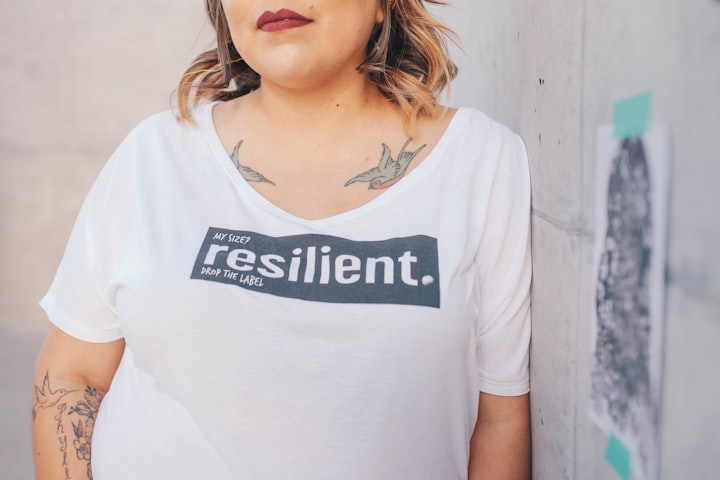Five Signs that You Are Resilient
Because resilient people can come back from anything.

Life is full of ups and downs. When challenging experiences inevitably arise, you'll want to be ready to rise to the occasion. Your ability to bounce back after a transition or hardship determines whether most of your life is enjoyable and meaningful or troublesome and frustrating.
This idea can be summed up in one word: resilience. The more resilient you are, the quicker you can re-adjust to a situation and move forward in life.
Consider these ideas you think about your resilience:
What’s your first response to something?
How do you respond when something initially bothers you? You might bury your head in the sand and hope it will disappear. You might ignore the situation and pretend it doesn't exist.
Resilient people choose to approach the situation head-on, and promptly. They analyze the problem, consider their options, and develop a strategy. Before the situation became a full-blown problem, they took immediate action to resolve it.
A major meltdown can be avoided by promptly employing problem-solving skills.
How do you approach past events?
Are you trying to forget your past challenges? Instead, apply what you learned from them to situations you will face in the future or in the present. Reflecting on your experiences will make you think about your mistakes. In addition, you will be pleased with how you handled some situations, and you can use the same skills in the future.
It takes a lot of energy to try to forget something important, which wears down your current resilience. Resilience can also be built by focusing on the lessons and skills you've gained from past experiences.
Do you practice every day?
Do you strive to accomplish something every day, no matter how small? Do you spend your days brooding or feeling sad or angry while you watch the world go by? Consider each day an opportunity to do something positive, even if it's just one thing.
You could go for a walk or clean the living room on your day off. You can practice by finishing a novel or calling a friend you haven't spoken to in a while. Your daily activities provide meaning to your life.
Support from your network.
When you need something, do you have a lot of friends and family to call on? Resilient individuals build a supportive network of people they can turn to when they hit troubled waters.
Set a goal to make one new friend within the next month if you feel alone.
Who is the most important person in your life?
Are you the most important person in your life? Taking care of your needs will make you more resilient when a crisis strikes. You'll be prepared to face any hardship, physical or emotional if you prioritize your health and living situation.
Maintaining your physical and mental health builds your reserves of resilience whenever you encounter challenging situations.
Tips to Build Resilience
1. Get connected. Build strong, personal relationships with people who support you and make you feel good about yourself. Call a friend or relative who you haven't spoken to in a while. Establish other important connections by volunteering or joining a faith or spiritual community.
2. Make every day meaningful. Do something that makes you feel accomplished and gives you purpose every day. Set clear, achievable goals to help you look forward to the future with meaning.
3. Learn from your experiences. Think of how you've coped with hardships in the past. Think about the skills and strategies that help you through difficult t imes. You might journal about your past experiences to help you identify positive and negative behavior patterns, and guide your behavior in the future.
4. Stay hopeful. You can't change the past, but you can always look toward the future. Accepting and anticipating change makes it easier to change and view new challenges with less anxiety.
5. Take care of yourself. Tend to your own needs and feelings. Participate in activities you enjoy. Include physical activity in your daily routine. Get plenty of sleep and create consistent bed time rituals. Eat healthily. Practice stress management and relaxation techniques like yoga, meditation, guided imagery, deep breathing or prayer.
6. Be proactive. Don't ignore your problems. Instead, figure out what you need to do, make a plan and take action. Although it can take time to recover from a major setback, traumatic event or loss, know you can improve your situation if you work at it.
Throughout your life, you will face challenges, transitions, and hardships. To build resilience for the future, you'll need to confront situations immediately, use the knowledge gained from previous trying events, and build your support network.
Do one small thing for yourself each day; before you know it, you'll easily weather any storm!
About the Creator
Erica Martin
I started writing in elementary school and haven't stopped since. I love to write about my life experiences and the hard lessons I've learned from them, as well as some of the life hacks I've discovered. I love tips for great work.






Comments
There are no comments for this story
Be the first to respond and start the conversation.